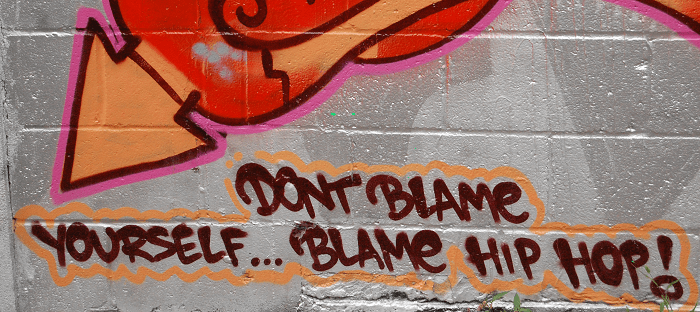With a major election occurring in a few short days here in the United States, we are seeing an amazing amount of coverage in the media and commentary on social media. It’s simply astounding to see the dialogue playing out right before our eyes.
Given the current environment in this country, I felt it was important to chime in on something that has come up repeatedly: Does it make sense for marketers to take advantage of the fever pitch of interest via content or other marketing vehicles?
Let me get right to the TL;DR part: No. It doesn’t.
Why Politics and Marketing is On My Mind
We recently had a contributed post proposed to Return On Now that we had to reject. You see, it has been our (my) policy to avoid touchy, divisive topics from the very day I launched this website. This has been my baby, even though others are now involved in parts of helping keep the baby alive.
I made a conscious decision in the early days of Return On Now that things like politics, religion, conspiracy theories, accusations, or anything else that is a hot button for people would be off limits. Why? I’m glad you asked…here are some reasons:
- These sorts of topics tend to lead to an emotional rather than a logical response
- Emotional responses can get out of hand before you even realize it happened
- A large portion of your potential readership likely disagrees with you (likely at least half with politics)
- Dissent + Emotional Response = Loss of Interest in Your Content
So you see, it’s not a decision that was taken lightly. I debated with myself and my close advisers and colleagues to figure out what was the smart decision. And this is what made the most sense.
What Does Data Say About Politics and Marketing?
Of course, I don’t expect you to take my own opinion as law. Let me share some of what I’ve seen cited that supports the notion of separation of “politics and marketing” as the right decision.
Political Ads, Sadly, Tend to Focus on the Negative
If you’ve paid attention to any election in your lifetime, surely you’ve seen negative ads that end with “I’m [insert candidate name], and I approve this message.” These ads can get quite aggressive and accusatory, and are known for generally spreading bad energy.
Simply put – people prefer to have positive energy in their lives. That’s a fact. Rather than continue to soapbox about the obvious, you can read more about the litany of research done in this area here.
Commercial Ads and Political Ads Don’t Mix Well
Very recently, the folks over at Advertising Age covered a study about this very topic. The study was fielded by Forethought and J. Walter Thompson, and it found that political ads (which lean toward the negative, as previously mentioned) can cause a negative reaction to brand ads that run in the very next spot.
Think about this for a second. The commercial advertising in question did not even allude to politics. And yet, according to the study:
One of the key findings from the survey was that political advertising, regardless of whether or not it is positive or negative, stimulates negative emotions from consumers. Participants who viewed the brand ad after a political ad perceived the brand spot as 32% less relevant, 29% less entertaining and 27% less appealing, the study shows.
If you are in the advertising game, you should be very concerned with this discovery. Keep in mind – the correlation did not extend to only the one single ad being viewed. It impacted how people viewed the brand itself!
My conclusion is that it would better serve you to simply dial down your mass media advertising altogether in the weeks leading up to a major election. Negative brand impact is a great reason to conserve budget for better days, like the holidays coming up in a few short weeks.
Mixing Politics and Marketing Puts Undue Pressure On People
This comes down to a range of issues, from peer pressure to bowing down to authority. People simply don’t like being manipulated into thinking the same thing someone else does inherently.
Then when you throw in the fact that a lot of people squirm when marketed to because they’re deathly afraid of being manipulated into doing something they don’t want to do, and you have a recipe for disaster!
Sometimes, people figure this out the hard way. Unfortunately, learning by trial and error in this situation can really leave a lasting negative impression on others. Is that how you want your brand to be seen? I’d wager the answer is a resounding “no” as it is with myself.
The Public is Already Worn Out Hearing About Politics
There, I said it. Political content and advertising leads to marketing fatigue by the very people you are trying to win over.
They are already on edge, already distrusting the messages and ads they are seeing, and they need something else. You can see it with all of the recent memes on Facebook, most of them saying “stop it, no one is changing their mind because of an argument on here!”
And really, there’s a lot of truth in that statement. So have mercy on your prospects and customers. Stick to the high road, and stay on topic. There’s no logical place for politics in your marketing or advertising materials.
Feature image sourced via creative commons attribution 2.0 license from Wikipedia.
Tommy Landry
Latest posts by Tommy Landry (see all)
- SEO for Wineries: How to Attract Visitors and Boost Wine Sales - November 11, 2025
- What to Look for in an SEO Retainer Contract - November 4, 2025
- Best Semantic SEO Consultants: Why the Foundation Matters for AEO and GEO - October 28, 2025





